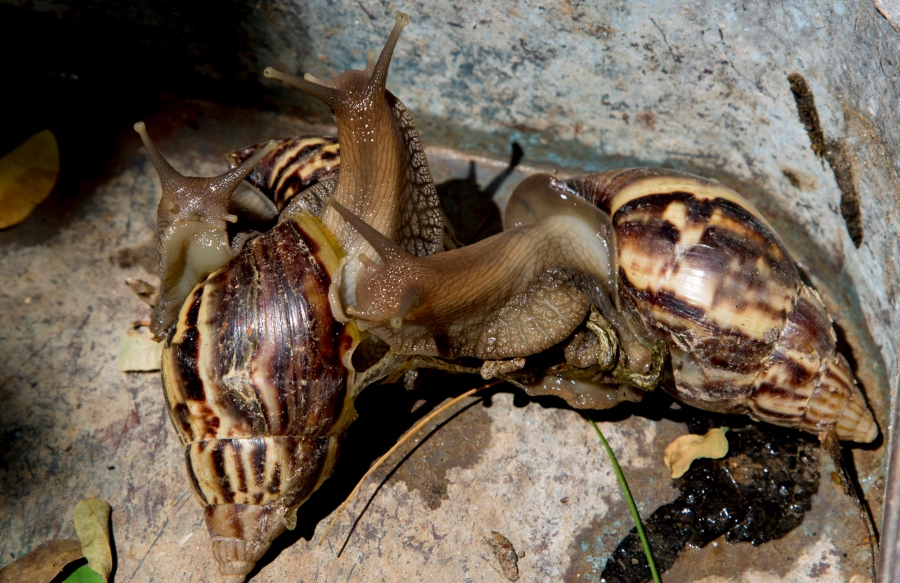TAMPA, Fla. (WFLA) — The ongoing effort to purge Giant African Land Snails from Pasco County has netted more than 1,400 GALS in Florida Department of Agriculture custody. The FDACS reported they have so far checked 525 properties, finding snails in just 30.
The quarantine area set up in Pasco County has not been enlarged. On July 7, the state said 1,000 snails had already been collected. Now, another 400 or so have been found.
Officials said only 1,434 snails have been found, with a mix of live and dead specimens. Giant snail purge underway in Pasco, residents urged not to eat them On July 7, Agriculture Commissioner Nikki Fried appeared in Clearwater to provide an update to the state effort to “eradicate” the GALS population in Pasco. The invasive mollusks were identified in New Port Richey at the end of June, and officials set up a quarantine zone to contain them as they took steps to destroy the population.
Giant African snails are considered some of the most damaging creatures on the planet, when it comes to crops and their effects on the environment. A Department of Agriculture worker holds a bag of Giant Snail Land Snails that were collected from a lawn in Miami, Friday, Sept. 30, 2011.
The Florida Department of Agriculture and Consumer Services has identified a population of Giant African Land Snails in Miami. They are one of the most damaging snails in the world because they consume at least 500 types of plants, can cause structural damage to plaster and stucco, and can carry a parasitic nematode that can lead to meningitis in humans. (AP Photo/J Pat Carter) The eradication effort being performed by FDACS is the third such snail purge since the end of the 1960s.
The most recent effort took 10 years to clear Miami-Dade County of its invaders, which eat not only more than 500 agricultural crops, but also stucco and plaster, putting structures and produce at risk. “The giant African snails are back, but let me assure you, we will eradicate these snails,” Fried said in Clearwater. “We have done it twice before and we will do it again.
It’s not a question of if, it’s just when. ” However, even her fellow FDACS officials said the process could be sluggish. Even after they destroy the snail population, the state won’t be able to give an all-clear on the eradication effort until two years after the fact.
Alongside Fried, Dr. Greg Hodges, the assistant director of the Division of Plant Industry talked about how the snail quarantine and eradication process would work. For the snail population to be purged, state officials have a team of specially trained canines that can sniff them out.
Additionally, officials have started deploying metaldehyde to essentially hit the giant snails with super salt, forcing them to slow down, dehydrate, and eventually starve. The treatment takes days to take effect, according to FDACS. Even without the chemical attacks on the giant snails, they wouldn’t be safe to eat.
Commissioner Fried warned residents not to eat the snails. State collects 1,000 invasive giant snails from New Port Richey amid outbreak “If you see one of these snails, do not touch it,” Fried said at the event. “Call us, make sure that you’ve got experts, they carry diseases like meningitis with them, and most importantly, do not eat them.
This is not a snail to be put on butter and oil and garlic. This is not something that you want to touch, this is not something you want to eat. ” So far, FDACS said no snails have been found outside of Pasco County, but residents are still encouraged to call a help line if they see snails they think might be GALS around Florida.
The number for the snail report helpline is 1-888-397-1517. .
From: wfla
URL: https://www.wfla.com/news/pasco-county/1400-giant-snails-found-on-30-properties-in-pasco-neighborhood/
